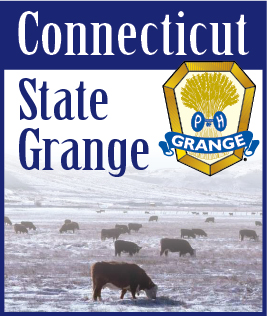| MAY 30, 2011 -- More than 800,000 (state of) Washington citizens live in rural areas. These citizens – about 12 percent of our state's population – face many challenges accessing healthcare.
Whether it's a simple checkup for a sore throat, an immunization or a sophisticated procedure, rural residents in the Evergreen State often have no choice but to travel to the nearest major city.
Asking someone to drive a few hours to see a specialist is one thing, but expecting someone facing a medical emergency to travel a long distance is quite another. This inconvenience can be deadly.
Last March, when President Obama signed his healthcare bill – the Patient Protection and Affordable Care Act – many of us hoped that the law's reforms would help rural communities. These days, though, we're increasingly fearful that the bill will create more problems.
One provision, the establishment of a new, presidentially appointed panel called the Independent Payment Advisory Board (IPAB), is almost certain to put both basic and specialized medical care even farther out of reach of those living in rural communities.
The IPAB's primary responsibility will be to ensure Medicare meets an annual target growth rate. If health costs increase too much, the IPAB will create a series of recommendations to get Medicare back on financial track.
Unless the House and Senate can propose and pass their own recommendations that meet the same spending targets – with three-fifths majority in the Senate – every one of the IPAB's suggestions automatically becomes law.
On paper, this may look like oversight, but it's not. Congress only has four months from the time it receives the board's initial recommendations to submit an alternative. To ask them to review, rewrite and build a three-fifths majority on such a short timeline is at best unfair – at worst a tactic to ensure the IPAB always gets its way.
Making matters worse, if a patient wants to challenge the government because an IPAB recommendation blocks a treatment they need, there's no legal recourse.
Rural communities account for almost a quarter of the U.S. population, yet their residents have access to less than 10 percent of the nation's health providers. If the IPAB were to further reduce these doctors' reimbursements, it is almost certain more doctors will abandon their rural posts. And for fast-aging communities where 23 percent of residents already rely on Medicare, this would be a devastating blow.
Hospitals, healthcare providers and patients could find support drastically reduced or even eliminated to meet the IPAB's arbitrary targets. Granges across the country were so concerned about the impacts of this government-centered approach to medical decision making that during the National Grange convention in November, policy was passed to call on members of Congress to repeal IPAB.
The Grange resolution noted, “While we certainly understand the desire to cut Medicare costs, we are concerned that IPAB moves decisions about the health of our members from the doctor and patient to Washington D.C.”
The whole goal of health care is to make people well. If we make the health of certain patients second to financial concerns, how can we still say it's serving the purpose for which it was created?
Rural areas are likely to be the hardest hit by the IPAB's creation and far-reaching, unchecked authority. These communities already know well the challenges of finding a doctor; IPAB would not only increase the number of challenges but also render rural patients less equipped to deal with them.
Medical decisions should be left to doctors and their patients, and the concern is that IPAB allows government accountants to intrude on that relationship.
By all means, let’s fix Medicare. But when it comes to IPAB, the cure might be worse than the disease.
Holli Johnson is an Olympia resident and legislative director for the Washington State Grange – a non-partisan, grass roots organization involved in statewide issues affecting Washington’s rural communities. |
